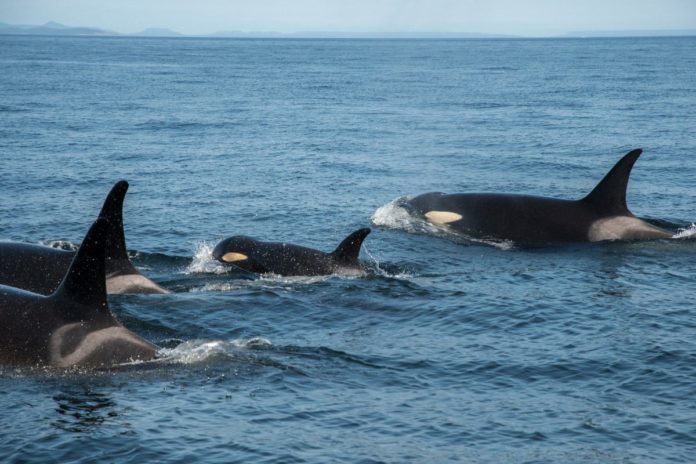Biologists are slowly but surely gathering clues as to what’s ailing one of the southern resident killer whales that has captured the attention of the West Coast.
J50, also known as Scarlet, is a three-year-old killer whale who was identified by National Oceanic and Atmospheric Administration (NOAA) Fisheries to be in poor health in early August.
Scarlet appeared lethargic and emaciated, and scientists weren’t sure if she was eating properly.
Following an up-close assessment from NOAA biologists and a Vancouver Aquarium veterinarian, response teams went ahead with a live fish release on Aug. 12. It was not clear at the time if Scarlet actually ate the fish, however.
Response teams also collected a series of samples from the pod, including fecal and prey samples.
#J50 Update 2 of 5: Under the direction of The Whale Sanctuary Project, a Lummi Nation vessel released 8 live hatchery salmon about 75 – 150 yds in front of J50. pic.twitter.com/lRe9PNcDNH
— NOAAFish_WCRO (@NOAAFish_WCRO) August 13, 2018
Now, test results from those samples are showing high levels of contracaecum, a nematode (or roundworm) parasite commonly found in killer whales and other marine mammals.
The NOAA says that while the worm is usually not a problem in healthy animals, it can penetrate the stomach lining and introduce bacterial infection to the bloodstream in mammals that are emaciated or compromised.
“While we cannot be sure the sample came from J50/Scarlet, the veterinary team has updated her treatment priorities to include antibiotics and a dewormer. Both have proven successful and safe in other cetaceans,” the NOAA says. “The treatment should help J50/Scarlet by reducing bacterial and parasitic burdens on her system so she can start regaining the weight she has lost.”
The whales are currently in open waters off the west side of Vancouver Island, and will have to return to the coast before response teams can act.
#J50 Update part 5 of 5: @DFO_Pacific and other partners continue their watch for signs of J Pod’s return to the more protected waters of the Salish Sea. Follow updates here and at https://t.co/rEsVWxON92. pic.twitter.com/u7MPdkut8a
— NOAAFish_WCRO (@NOAAFish_WCRO) August 18, 2018
See also:
- This painting of the grieving orca J35 has 11,000 shares on Facebook
- Grieving orca mother spotted without her dead calf after almost three weeks



